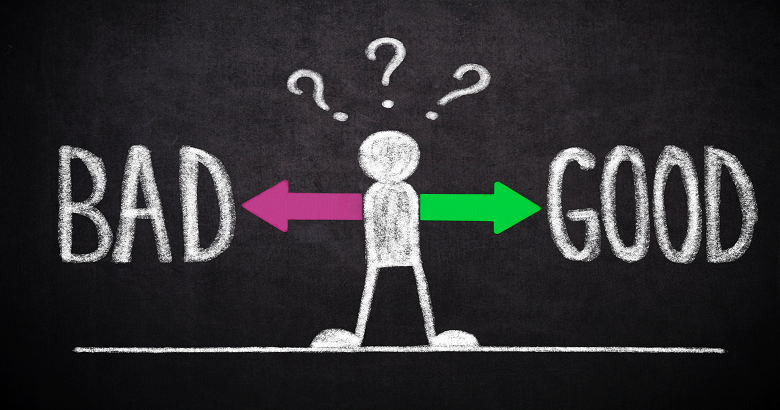Fantasy, a genre that transcends mere fiction, has enticed human minds for centuries. From ancient myths to modern novels and films, fantasy offers an escape from reality and a lens through which we can explore complex ideas. But is fantasy inherently good or bad? This blog post delves into how fantasy shapes our reality and mindset, examining its benefits and potential drawbacks.
The Allure of Fantasy
Fantasy is a world where imagination reigns supreme. It allows us to explore worlds filled with magic, mythical creatures, and epic adventures. This allure lies in its ability to transport us beyond the mundane, offering a sense of wonder and possibility. Through fantasy, we can experience emotions and scenarios outside our daily lives, which can be both exhilarating and liberating.
Fantasy stories often feature grand quests and heroes overcoming insurmountable odds. This narrative structure can provide a sense of hope and inspire individuals to pursue their own dreams and goals. The escapism offered by fantasy allows people to momentarily step away from their problems and view them from a fresh perspective.
Positive Impacts of Fantasy
1. Enhancing Creativity
Fantasy stimulates creativity by encouraging us to think beyond the constraints of reality. It challenges us to imagine the impossible and consider new perspectives. This creative thinking can translate into problem-solving skills in real life, inspiring innovation and adaptability. Writers, artists, and filmmakers often draw inspiration from fantasy, leading to groundbreaking works in various fields.
Fantasy encourages the exploration of “what if” scenarios, which can be applied to real-world challenges. By envisioning different possibilities, individuals can develop innovative solutions and approaches. In education, fantasy can engage students’ imaginations, making learning more engaging and effective.
2. Emotional and Psychological Benefits
Engaging with fantasy can have therapeutic effects. It provides an escape from stress and anxiety, allowing individuals to recharge and gain perspective. By exploring different characters and worlds, readers and viewers can process their emotions and experiences in a safe space. This engagement can promote empathy and emotional intelligence as individuals relate to the struggles and triumphs of fictional characters.
Fantasy can also provide comfort and hope. Stories of resilience and overcoming adversity can inspire readers to face their own challenges with renewed strength and optimism. Characters in fantasy often embody virtues like courage, loyalty, and perseverance, serving as role models for readers.
3. Cultural and Social Exploration
Fantasy often reflects societal issues and cultural themes, offering a unique way to explore and critique real-world problems. It can address topics like power dynamics, identity, and morality, prompting readers to question their beliefs and values. By presenting these themes in a fantastical setting, creators can discuss sensitive issues in a more approachable manner.
This genre allows for the exploration of complex themes without the constraints of reality, enabling deeper discussions about ethics, justice, and human nature. Fantasy can also promote cultural awareness by incorporating diverse mythologies and traditions, fostering a greater appreciation for different cultures.
Potential Drawbacks of Fantasy

1. Escapism and Reality Avoidance
While fantasy offers an escape, excessive immersion in fictional worlds can lead to the avoidance of real-life responsibilities and challenges. This escapism can hinder personal growth and problem-solving, as individuals may choose to retreat into fantasy rather than confront difficulties. Finding a balance between enjoying fantasy and engaging with reality is essential.
Fantasy should be a complement to reality, not a substitute. It’s important to use fantasy as a tool for reflection and inspiration rather than a means of avoidance. Setting boundaries on consumption and being mindful of its impact can help maintain a healthy balance.
2. Distorted Perceptions
Fantasy can sometimes blur the line between reality and fiction, leading to distorted perceptions of the world. This distortion can affect expectations, relationships, and decision-making. For instance, romanticized portrayals of relationships or success in fantasy can create unrealistic standards, leading to dissatisfaction and disappointment in real life.
It’s crucial to recognize the difference between fantasy and reality to maintain healthy perceptions and expectations. Critical thinking and awareness can help mitigate these effects, allowing individuals to enjoy fantasy without losing touch with reality.
3. Cultural Misrepresentation
Although fantasy can explore cultural themes, it risks perpetuating stereotypes and inaccuracies. Misrepresentation of cultures, histories, or social issues can reinforce harmful narratives. Creators must approach fantasy with sensitivity and responsibility to ensure diverse and accurate representation.
Authentic representation in fantasy requires research, respect, and a commitment to portraying cultures and identities thoughtfully. Engaging with diverse creators and perspectives can enrich the genre and promote inclusivity.
Fantasy’s Role in Shaping Reality
Fantasy does more than entertain; it influences how we perceive and interact with the world. It can inspire change by presenting visionary ideas and challenging societal norms. For example, fantasy stories often feature protagonists who defy the odds and fight for justice, empowering readers to envision a better world and take action.
Fantasy can also serve as a mirror, reflecting societal issues and prompting reflection and dialogue. By engaging with fantastical narratives, individuals can gain insights into their own lives and societal structures. This reflection can lead to greater self-awareness and a deeper understanding of the world.
The Balance of Fantasy and Reality

The key to harnessing the benefits of fantasy lies in finding a healthy balance. Engaging with fantasy should complement, not replace, real-world experiences and responsibilities. By maintaining this balance, individuals can enjoy the creativity and inspiration fantasy offers while staying grounded in reality.
Mindful engagement with fantasy involves setting boundaries and being aware of its impact on one’s perception and behavior. Encouraging critical thinking and open discussions about the themes and messages in fantasy can enhance its positive effects.
Sums Up
Fantasy is neither inherently good nor bad; its impact depends on how it is engaged with and interpreted. It has the power to enrich our lives, broaden our perspectives, and inspire positive change. However, it also carries the risk of escapism and distorted perceptions. By approaching fantasy with mindfulness and balance, we can harness its potential to enhance our reality and mindset.
In embracing fantasy, we open ourselves to a world of possibilities while remaining anchored to the truths of our own lives. Whether through literature, film, or art, fantasy continues to shape our understanding of the world and ourselves, offering insights and inspiration that transcend the boundaries of imagination.
By engaging with fantasy thoughtfully, we can enjoy its wonders while staying connected to the real world, using its lessons to improve our lives and communities.
Frequently Asked Questions
1. How does fantasy influence personal creativity and innovation?
Fantasy stimulates personal creativity by encouraging imaginative thinking and exploration of new ideas. Engaging with fantastical worlds and scenarios allows individuals to break free from conventional thinking, fostering innovative solutions and approaches. For instance, many technological advancements have roots in speculative fiction, where creators envision possibilities beyond current limitations. This imaginative thinking can lead to breakthrough innovations in fields like technology, design, and art.
2. Can fantasy help in understanding and processing complex emotions?
Yes, fantasy can be a powerful tool for understanding and processing complex emotions. By immersing in stories that explore themes of loss, love, and identity, individuals can safely navigate their own emotional landscapes. Characters in fantasy often face extraordinary challenges, mirroring real-life struggles in exaggerated forms, which can offer new perspectives and coping mechanisms. This emotional engagement can enhance empathy and emotional intelligence, helping individuals relate to others and themselves more deeply.
3. In what ways does fantasy challenge societal norms and values?
Fantasy often challenges societal norms and values by presenting alternative worlds where different rules apply. These narratives can question existing power structures, gender roles, and moral dilemmas, prompting readers to reflect on their beliefs and values. For example, fantasy can explore themes of equality and justice through allegorical tales, encouraging critical thinking about real-world issues. By questioning the status quo, fantasy can inspire social change and broaden perspectives.
4. How does overindulgence in fantasy impact real-world responsibilities?
Overindulgence in fantasy can lead to escapism, where individuals may avoid real-world responsibilities and challenges. This avoidance can hinder personal growth and development, as important tasks and problems are left unaddressed. While fantasy offers a temporary refuge, it is essential to maintain a balance, using it as a tool for relaxation and inspiration rather than a means of avoidance. Setting boundaries and prioritizing real-life duties can help mitigate these risks.
5. What ethical considerations should creators keep in mind when developing fantasy worlds?
Creators should consider cultural sensitivity, representation, and the impact of their narratives when developing fantasy worlds. Ensuring diverse and accurate portrayals of cultures and identities is crucial to avoid perpetuating stereotypes and biases. Ethical storytelling involves research and collaboration with diverse voices to create inclusive and respectful narratives. Additionally, creators should be mindful of the messages and themes they explore, considering their potential influence on audiences and societal perceptions.

